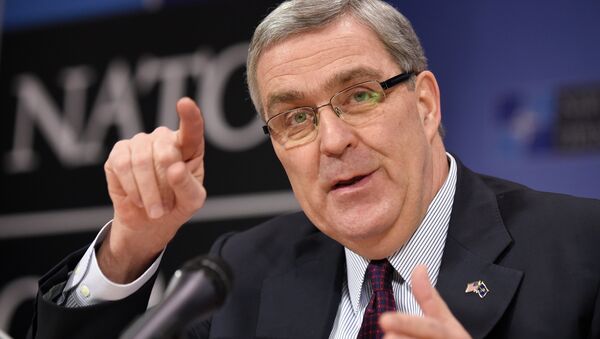"I do not believe that anyone in Russia today intends to attack NATO. But that doesn't mean that we do not have a responsibility to reassure allies like Estonia, who is our front-line ally that is they have a land border with Russia," Lute told ABC broadcaster in an interview ahead of the upcoming NATO-Russia Council (NRC) in Brussels on Monday.
On Sunday, the alliance's Secretary General Jens Stoltenberg said that NATO was not seeking an escalation in relations with Russia, it did not want new Cold War.
The first NRC meeting since NATO-Russian relations deterioration over Ukraine crises took place on April 20 at the level of permanent envoys, but failed to yield any significant results, as the sides disagreed on a number of geopolitical issues. Another NRC meeting, at the ambassadorial level, was held in Brussels on July 13.
Since 2014, NATO has been building up its military presence in Europe, particularly in the Baltic states, including Latvia, using Moscow's alleged interference in Ukraine as a pretext for the move.
Moscow has repeatedly rejected assertions about its intentions and actions in the region. Moreover, Russia has warned against NATO’s increasing military buildup along its borders despite previous agreements, stating such actions are provocative and threatening regional and global stability.



